Sunday, 12 July 2020
8 am BST: Announcement of the FKNE Mentoring Prize 2020 Winner
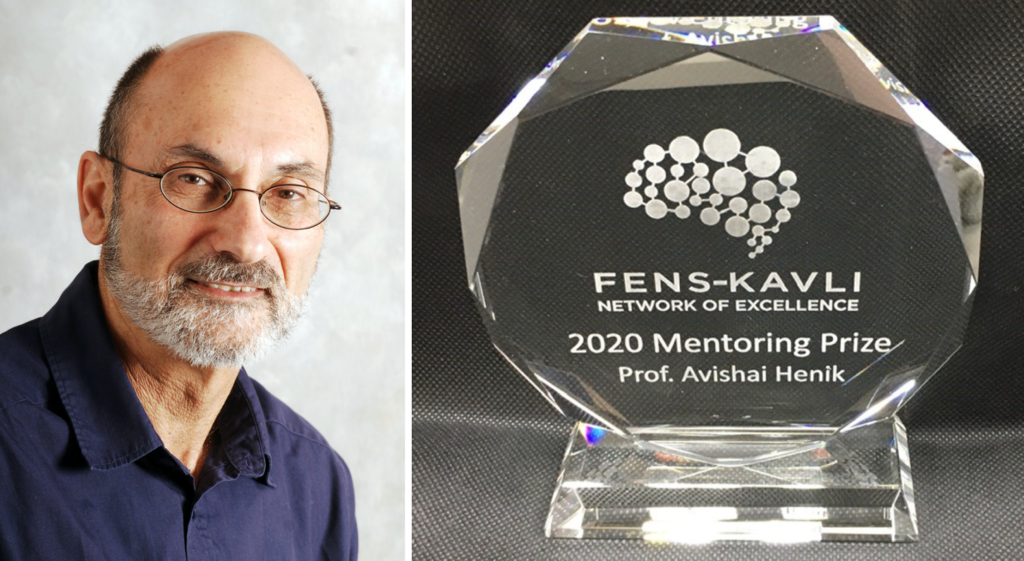
Prof. Avishai Henik
Ben-Gurion University of The Negev
Israel
***
11:30-12 BST: Meet FKNE – Introduction to the FENS-Kavli Network
This is an information event where people can learn about the FENS-Kavli Network, it’s make-up, and its activities. If you are interested in applying, and would like to know more, do come along.
9:30-10:30 am BST: ALBA-FKNE live panel discussion: How to negotiate to get what you need
3:30-4:00 pm BST: How COVID-19 Has Affected Neuroscientists?
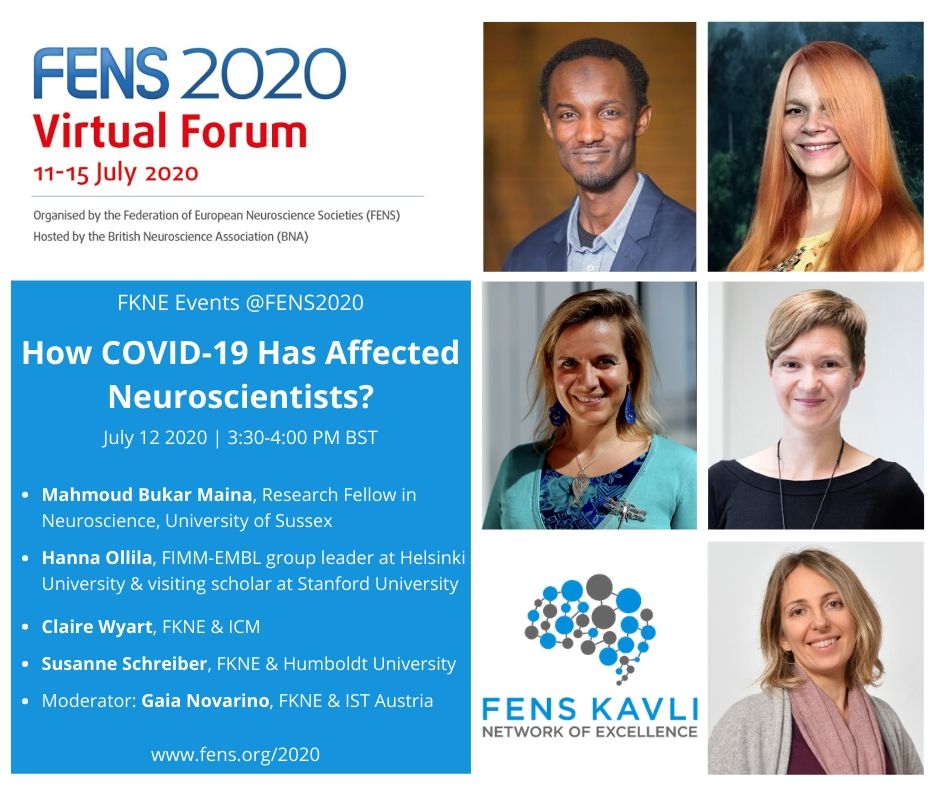
COVID-19 pandemic affects neuroscientists´ lives. It affects many aspects of neuroscientists’ careers, neuroscience research and society, how we interact with each other, how to run collaboration, and how to build new connections. Not all effects are negative, pandemic has opened doors to discuss with scientists from other fields. It has also pushed us to work closer with politicians and governments to achieve science-based decisions. It has pushed us to broader science outreach than ever to reach everyone on the streets. In this panel discussion, we will shortly go through how COVID-19 pandemic has affected neuroscientists.
Panelists:
Moderator: Gaia Novarino (FKNE, IST Austria)
Monday, 13 July 2020
8 am BST: Announcement of the ALBA-FKNE Diversity Prize 2020 Winner
With this Diversity prize, The ALBA Network and the The FENS-Kavli Scholars wish to highlight a scientist or group that has made outstanding contributions to promoting equality and diversity in brain sciences.
Congratulations to the Awardee of the ALBA-FKNE Diversity Prize, Prof. Erin Schuman, Max Planck Institute for Brain Research, Germany!
Tuesday, 14 July
8 am BST: Announcement of the FKNE PhD Thesis Prize Winner
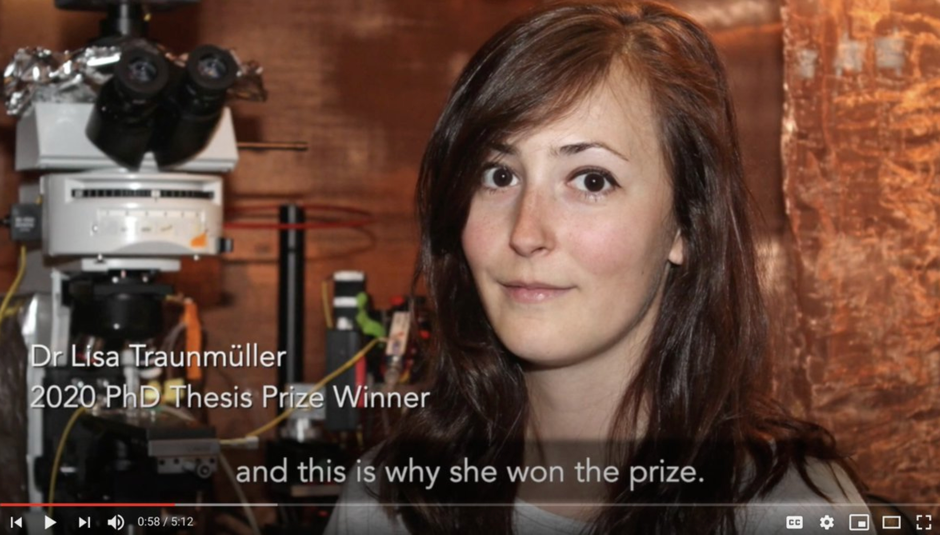
Dr. Lisa Traunmüller
UNIBAS
Switzerland
9;30 -10:30 am BST: Towards an environmentally-friendly model for life sciences
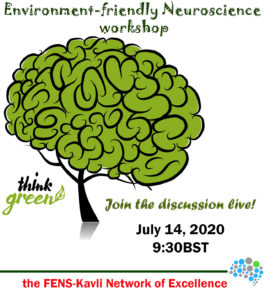 The earth’s climate is undoubtedly changing. Although scientists are, to a large extent, receptive of this fact and aware of the causes and consequences of the current environmental crisis, identifying what we can do as a community, at the level of laboratories, research institutions and individually as scientists remains elusive.
The earth’s climate is undoubtedly changing. Although scientists are, to a large extent, receptive of this fact and aware of the causes and consequences of the current environmental crisis, identifying what we can do as a community, at the level of laboratories, research institutions and individually as scientists remains elusive.
This special interest event offers a forum to discuss what we can do to adopt a more sustainable model for life-sciences. The organizers will present the results of a small survey performed among neuroscientists and their research institutes to trigger the discussion on the environmental footprint of our community and to start identifying solutions. A panel of academics, activists and life-science industry representatives, among others, will share their viewpoints and experiences implementing concrete actions towards an environmentally friendly life-science framework. In addition to raising awareness on the impact of life sciences on the environment, we will highlight the need to better measure and document this impact, including plastic and Co2 emissions in scientific events and research centers. We also aim to draw up a list of concrete actions that define gold-standards of sustainability for our scientific community. Join us and add your voice to this exciting discussion!
Panelists:
Wednesday, 15 July 2020
9:30-10:20 am BST: Starting and mid-career PI hurdles
The event will focus on topics relevant for senior postdocs, newly appointed and mid-career PIs. The approached themes include: how to get the first PI position, selection of team members, application and management of funds, the mid-career gap, early and mid-career mobility, and coping with stress while balancing life with career. The overall aim of the event is to bring together the attendees with current mid-career FKNE and FKNE alumni PIs to share concrete experiences and problem-solving skills, and start to create a network among the future generation of PIs.
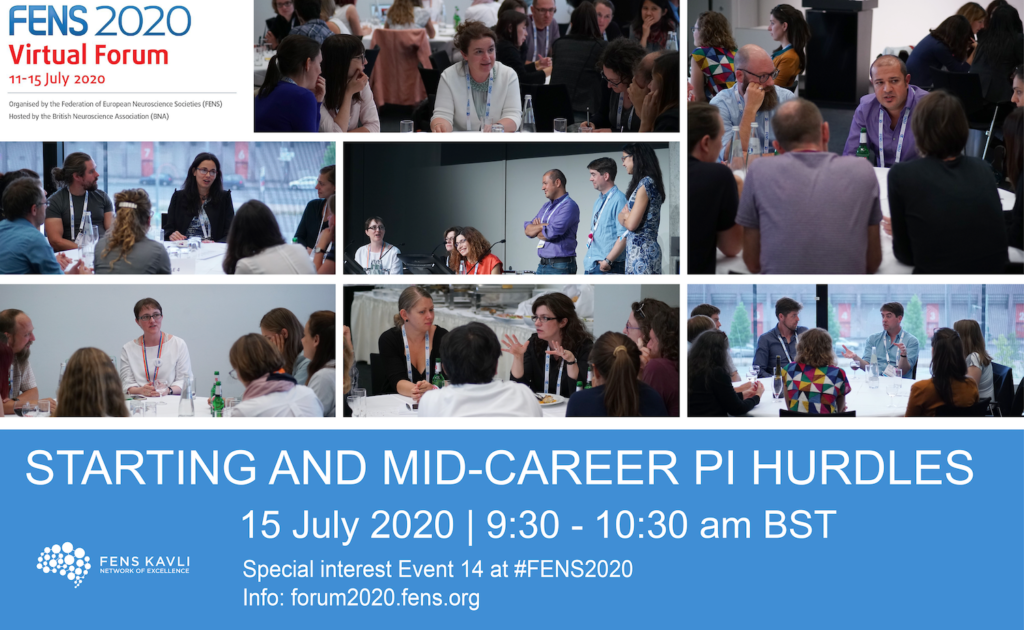
9:30-10:20 am BST: Research Funding in Europe POST-COVID -19
The goal of the workshop is to inform neuroscience researchers about strategies, mechanisms, and challenges of science advocacy in Europe; and to encourage individuals to find effective ways of engaging on policy issues. The event will include a panel discussion where audience engagement is highly encouraged.
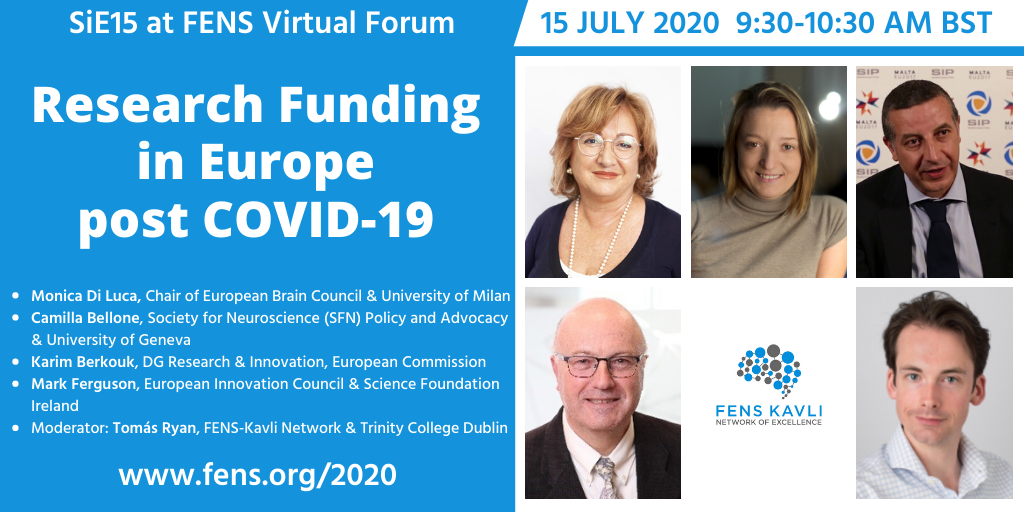
Sunday, 12 July 2020
8 am BST: Announcement of the FKNE Mentoring Prize 2020 Winner

Prof. Avishai Henik
Ben-Gurion University of The Negev
Israel
***
11:30-12 BST: Meet FKNE – Introduction to the FENS-Kavli Network
This is an information event where people can learn about the FENS-Kavli Network, it’s make-up, and its activities. If you are interested in applying, and would like to know more, do come along.
9:30-10:30 am BST: ALBA-FKNE live panel discussion: How to negotiate to get what you need
3:30-4:00 pm BST: How COVID-19 Has Affected Neuroscientists?

COVID-19 pandemic affects neuroscientists´ lives. It affects many aspects of neuroscientists’ careers, neuroscience research and society, how we interact with each other, how to run collaboration, and how to build new connections. Not all effects are negative, pandemic has opened doors to discuss with scientists from other fields. It has also pushed us to work closer with politicians and governments to achieve science-based decisions. It has pushed us to broader science outreach than ever to reach everyone on the streets. In this panel discussion, we will shortly go through how COVID-19 pandemic has affected neuroscientists.
Panelists:
Moderator: Gaia Novarino (FKNE, IST Austria)
Monday, 13 July 2020
8 am BST: Announcement of the ALBA-FKNE Diversity Prize 2020 Winner
With this Diversity prize, The ALBA Network and the The FENS-Kavli Scholars wish to highlight a scientist or group that has made outstanding contributions to promoting equality and diversity in brain sciences.
Congratulations to the Awardee of the ALBA-FKNE Diversity Prize, Prof. Erin Schuman, Max Planck Institute for Brain Research, Germany!
Tuesday, 14 July
8 am BST: Announcement of the FKNE PhD Thesis Prize Winner

Dr. Lisa Traunmüller
UNIBAS
Switzerland
9;30 -10:30 am BST: Towards an environmentally-friendly model for life sciences
 The earth’s climate is undoubtedly changing. Although scientists are, to a large extent, receptive of this fact and aware of the causes and consequences of the current environmental crisis, identifying what we can do as a community, at the level of laboratories, research institutions and individually as scientists remains elusive.
The earth’s climate is undoubtedly changing. Although scientists are, to a large extent, receptive of this fact and aware of the causes and consequences of the current environmental crisis, identifying what we can do as a community, at the level of laboratories, research institutions and individually as scientists remains elusive.
This special interest event offers a forum to discuss what we can do to adopt a more sustainable model for life-sciences. The organizers will present the results of a small survey performed among neuroscientists and their research institutes to trigger the discussion on the environmental footprint of our community and to start identifying solutions. A panel of academics, activists and life-science industry representatives, among others, will share their viewpoints and experiences implementing concrete actions towards an environmentally friendly life-science framework. In addition to raising awareness on the impact of life sciences on the environment, we will highlight the need to better measure and document this impact, including plastic and Co2 emissions in scientific events and research centers. We also aim to draw up a list of concrete actions that define gold-standards of sustainability for our scientific community. Join us and add your voice to this exciting discussion!
Panelists:
Wednesday, 15 July 2020
9:30-10:20 am BST: Starting and mid-career PI hurdles
The event will focus on topics relevant for senior postdocs, newly appointed and mid-career PIs. The approached themes include: how to get the first PI position, selection of team members, application and management of funds, the mid-career gap, early and mid-career mobility, and coping with stress while balancing life with career. The overall aim of the event is to bring together the attendees with current mid-career FKNE and FKNE alumni PIs to share concrete experiences and problem-solving skills, and start to create a network among the future generation of PIs.

9:30-10:20 am BST: Research Funding in Europe POST-COVID -19
The goal of the workshop is to inform neuroscience researchers about strategies, mechanisms, and challenges of science advocacy in Europe; and to encourage individuals to find effective ways of engaging on policy issues. The event will include a panel discussion where audience engagement is highly encouraged.

Sunday, 12 July 2020
8 am BST: Announcement of the FKNE Mentoring Prize 2020 Winner

Prof. Avishai Henik
Ben-Gurion University of The Negev
Israel
***
11:30-12 BST: Meet FKNE – Introduction to the FENS-Kavli Network
This is an information event where people can learn about the FENS-Kavli Network, it’s make-up, and its activities. If you are interested in applying, and would like to know more, do come along.
9:30-10:30 am BST: ALBA-FKNE live panel discussion: How to negotiate to get what you need
3:30-4:00 pm BST: How COVID-19 Has Affected Neuroscientists?

COVID-19 pandemic affects neuroscientists´ lives. It affects many aspects of neuroscientists’ careers, neuroscience research and society, how we interact with each other, how to run collaboration, and how to build new connections. Not all effects are negative, pandemic has opened doors to discuss with scientists from other fields. It has also pushed us to work closer with politicians and governments to achieve science-based decisions. It has pushed us to broader science outreach than ever to reach everyone on the streets. In this panel discussion, we will shortly go through how COVID-19 pandemic has affected neuroscientists.
Panelists:
Moderator: Gaia Novarino (FKNE, IST Austria)
Monday, 13 July 2020
8 am BST: Announcement of the ALBA-FKNE Diversity Prize 2020 Winner
With this Diversity prize, The ALBA Network and the The FENS-Kavli Scholars wish to highlight a scientist or group that has made outstanding contributions to promoting equality and diversity in brain sciences.
Congratulations to the Awardee of the ALBA-FKNE Diversity Prize, Prof. Erin Schuman, Max Planck Institute for Brain Research, Germany!
Tuesday, 14 July
8 am BST: Announcement of the FKNE PhD Thesis Prize Winner

Dr. Lisa Traunmüller
UNIBAS
Switzerland
9;30 -10:30 am BST: Towards an environmentally-friendly model for life sciences
 The earth’s climate is undoubtedly changing. Although scientists are, to a large extent, receptive of this fact and aware of the causes and consequences of the current environmental crisis, identifying what we can do as a community, at the level of laboratories, research institutions and individually as scientists remains elusive.
The earth’s climate is undoubtedly changing. Although scientists are, to a large extent, receptive of this fact and aware of the causes and consequences of the current environmental crisis, identifying what we can do as a community, at the level of laboratories, research institutions and individually as scientists remains elusive.
This special interest event offers a forum to discuss what we can do to adopt a more sustainable model for life-sciences. The organizers will present the results of a small survey performed among neuroscientists and their research institutes to trigger the discussion on the environmental footprint of our community and to start identifying solutions. A panel of academics, activists and life-science industry representatives, among others, will share their viewpoints and experiences implementing concrete actions towards an environmentally friendly life-science framework. In addition to raising awareness on the impact of life sciences on the environment, we will highlight the need to better measure and document this impact, including plastic and Co2 emissions in scientific events and research centers. We also aim to draw up a list of concrete actions that define gold-standards of sustainability for our scientific community. Join us and add your voice to this exciting discussion!
Panelists:
Wednesday, 15 July 2020
9:30-10:20 am BST: Starting and mid-career PI hurdles
The event will focus on topics relevant for senior postdocs, newly appointed and mid-career PIs. The approached themes include: how to get the first PI position, selection of team members, application and management of funds, the mid-career gap, early and mid-career mobility, and coping with stress while balancing life with career. The overall aim of the event is to bring together the attendees with current mid-career FKNE and FKNE alumni PIs to share concrete experiences and problem-solving skills, and start to create a network among the future generation of PIs.

9:30-10:20 am BST: Research Funding in Europe POST-COVID -19
The goal of the workshop is to inform neuroscience researchers about strategies, mechanisms, and challenges of science advocacy in Europe; and to encourage individuals to find effective ways of engaging on policy issues. The event will include a panel discussion where audience engagement is highly encouraged.
